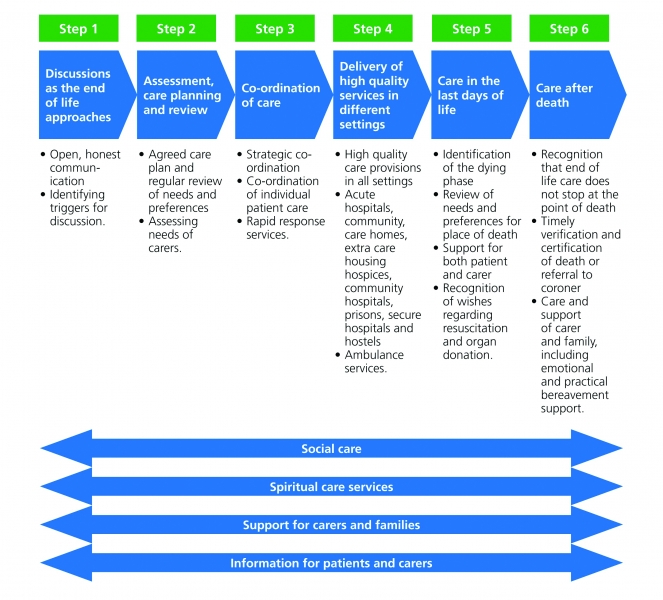Carers

Carers – by whom we mean people who provide unpaid support to a family member or friend – are crucial at the end of life. As our society ages and more people live with long-term conditions and general frailty, there will be more people supporting their mothers, fathers, partners, brothers, sisters, children and friends throughout the journey, and ultimately, at the end of life.
Indeed, there are 6 million carers in the UK at any one time. That is 1 in 10 people, and this number is set to increase. However people surrounding the person at the end of life are too often overlooked, despite the crucial role they play. Carers will have their own physical, social and emotional needs, which can be exasperated by the demanding role they play and navigating the person through our complicated health and social care system.
The national End of Life Care Strategy, published in 2008 by the Department of Health, recognises carers not just as givers of care, but also as people in need of support. The six-step pathway set out in the Strategy clearly states support for carers should be provided at every step of the journey (see below). The refreshed Carers Strategy (DH, 2010) also notes the importance of supporting carers at the end.

Carers’ role in allowing people to die in their preferred place
A key part of the government’s Strategy is to meet more people’s preference to die at home, rather than in hospital. However, this policy has significant implications for unpaid carers. A home death invariably involves coordinating a range of professionals and agencies coming in and out of the home, a role which usually falls to the carer. This is during a time when the cared-for person’s needs may be greater than ever, and the first national survey of end of life experiences revealed that only half of carers of dying people receive the help they need (VOICES, 2012).
NCPC’s key messages:
- It is the responsibility of everyone who comes into contact with carers to do what they can to make sure the carer has the skills, resources and strength to care
- This is an issue which affects not only health and care, but also our relationships, employment, welfare and society as a whole.
- It is often the simple things that make the difference to carers of people approaching the end of life – for example information on how to navigate the health and social care system, or who to speak and at what time.
NCPC recently held its first national conference aimed at supporting carers of people approaching the end of life on 6th November 2012 in London. The event was a huge success and we are producing a report based on the conference and our learning so far, which will be sent to NCPC subsribers in February 2013. For more information and to see the presentations from the day, please click here.
For more information, subscribers can visit our online Library. For information on how to become a subscriber, click here.
Resources:
NCPC & Dying Matters, in partnership with other organisations, have produced a series of webpages offering information and discussion documents on this topic. To view them, click here.
Please visit our Library to view a copy our Carers Edition of Inside Palliative Care, volume 20.
Involving and supporting carers in end of life care in acute hospitals
NCPC is working with the National End of Life Care Programme on a new project to highlight the importance of involving carers in end of life care in acute hospitals. Click here to find out more, orcontact Lucy Whitman, Involvement Officer, NCPC at L.whitman@ncpc.org.uk or on 020 7697 1520
Useful websites:
Carers UK - www.carersuk.org
Carers Trust - www.carers.org
Age UK - www.ageuk.org.uk
Help the Hospices - www.helpthehospices.org.uk
Macmillan - www.macmillan.org.uk/morethanamillion
Marie Curie Cancer Care - www.mariecurie.org.uk/carers
Sue Ryder - www.sueryder.org
NHS Carers Direct - www.nhs.uk/carersdirect